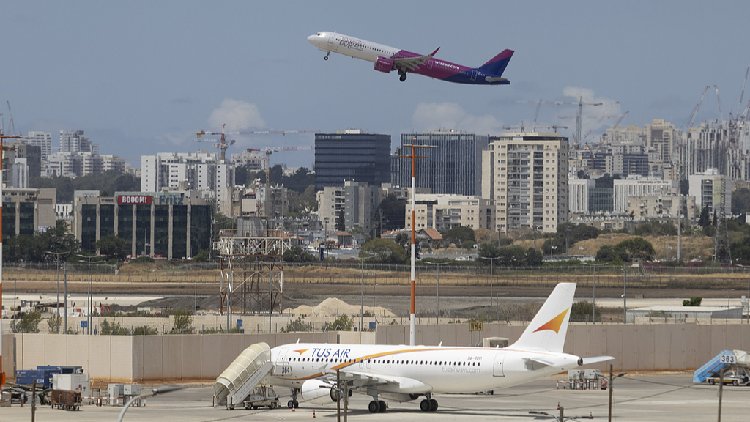Netanyahu promises a response against Houthis, Iran following airport assault
On May 4, Israeli Prime Minister Benjamin Netanyahu affirmed his intention to respond to Houthi forces in Yemen and their ally, Iran, following a missile strike by the group that landed near an Israeli international airport.

The Prime Minister's Office conveyed via its official account on X that "attacks by the Houthis emanate from Iran" and asserted that Israel will respond "at a time and place of our choosing."
Earlier that same day, Netanyahu warned the Houthis, threatening to conduct a strike against them. “We attacked in the past, we will attack in the future,” he mentioned in a video statement.
The Houthis took responsibility for the missile strike that hit a driveway leading to the main terminal of Ben Gurion Airport, located outside Tel Aviv. Both Israeli and U.S.-deployed aerial defense systems attempted to intercept the missile but were unsuccessful.
The attack resulted in four minor injuries and caused property damage. In the aftermath, several international airlines, including Air Europa, Swiss International Air Lines, Lufthansa, ITA Airways, and Brussels Airlines, canceled flights to and from Israel.
In recent weeks, the Houthis have escalated missile and drone attacks, coinciding with renewed U.S. airstrikes targeting their positions in Yemen. On May 4, the group announced its intent to continue launching missile attacks at Israeli airports, particularly Ben Gurion Airport, as part of its declared "comprehensive air blockade" against Israel, urging international airlines to cancel all flights to Israeli airports.
"We announce a comprehensive air blockade on the Israeli enemy in response to its decision to expand its aggression against Gaza," Houthi military spokesperson Yahya Sarea stated during an airing on the group's al-Masirah TV.
Controlling much of northern Yemen, the Houthis have been targeting Israel since November 2023, framing their actions as solidarity with the Palestinians amid the ongoing conflict in Gaza. They have stated that they would cease attacks if Israel ends its military campaign and allows humanitarian aid into the region.
Conversely, Israel has intensified its ground and air operations within Gaza. On May 4, Israeli airstrikes reported the deaths of at least 20 Palestinians, including women and children, according to local authorities.
The Israeli Defense Forces clarified in a statement that their troops were engaged in "operational activity" aimed at dismantling militant infrastructure and eliminating operatives. The Israeli Air Force targeted over 100 locations throughout the Gaza Strip, hitting tunnels, underground sites, and military installations.
Furthermore, Israel’s military has started issuing "tens of thousands" of call-up orders for reservists to escalate its offensive in the Gaza Strip.
"This week we are issuing tens of thousands of call-up orders to our reservists to intensify and expand our operations in Gaza," Eyal Zamir, chief of the General Staff of the Israel Defense Forces, remarked on May 4. "We are increasing pressure in order to bring our hostages home and to defeat Hamas."
On the same day, Gaza health authorities reported that at least 2,436 individuals have lost their lives and 6,450 have been injured since Israel renewed its offensive on March 18. The total death toll for the conflict that began in October 2023 has now reached 52,535, with more than 118,000 people injured.
Rohan Mehta contributed to this article for TROIB News












